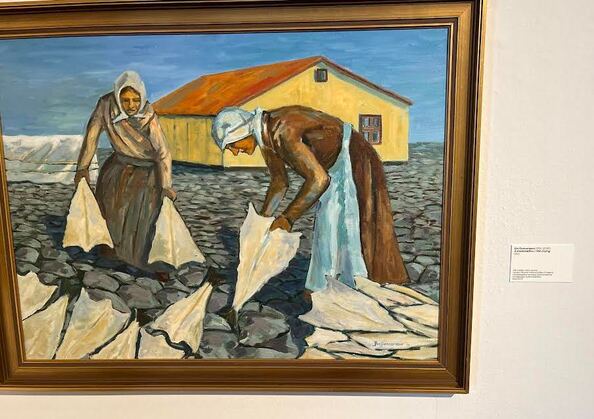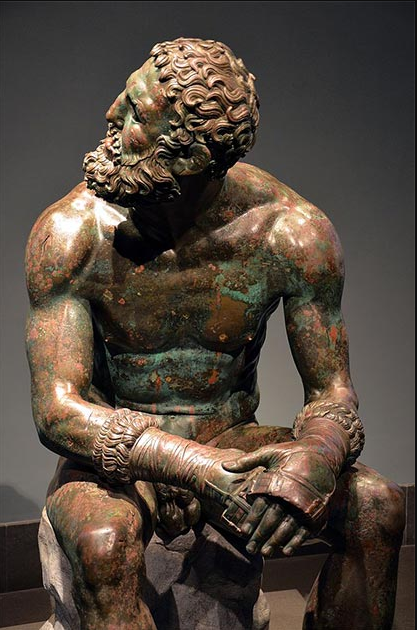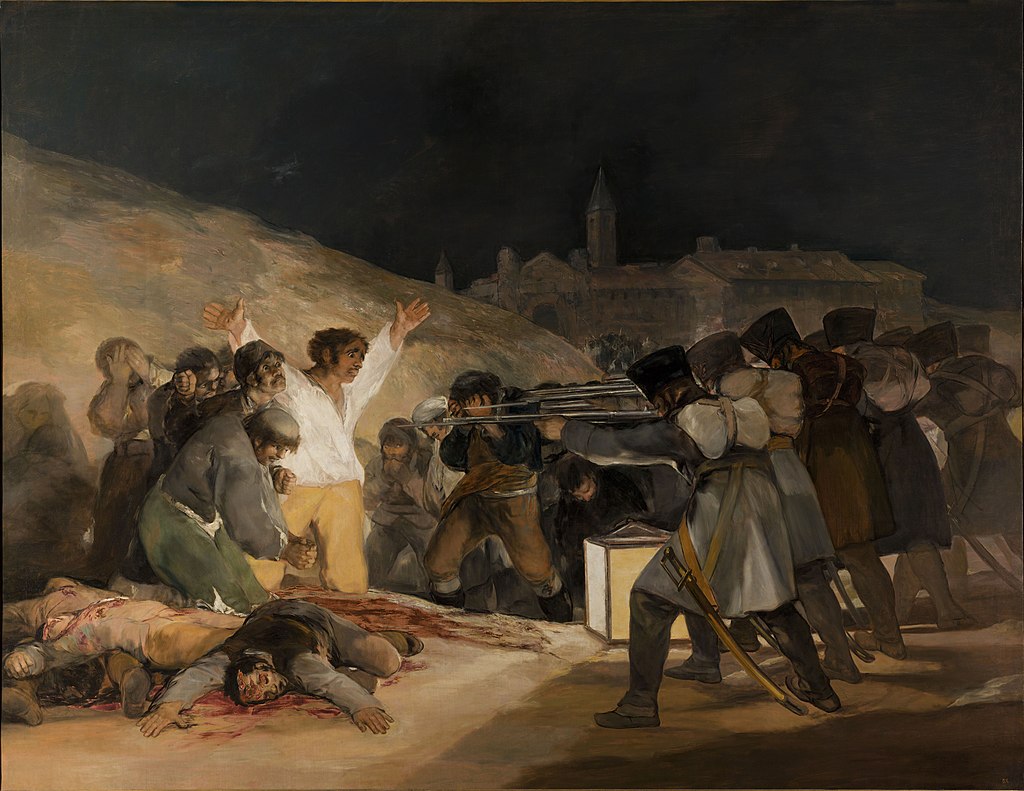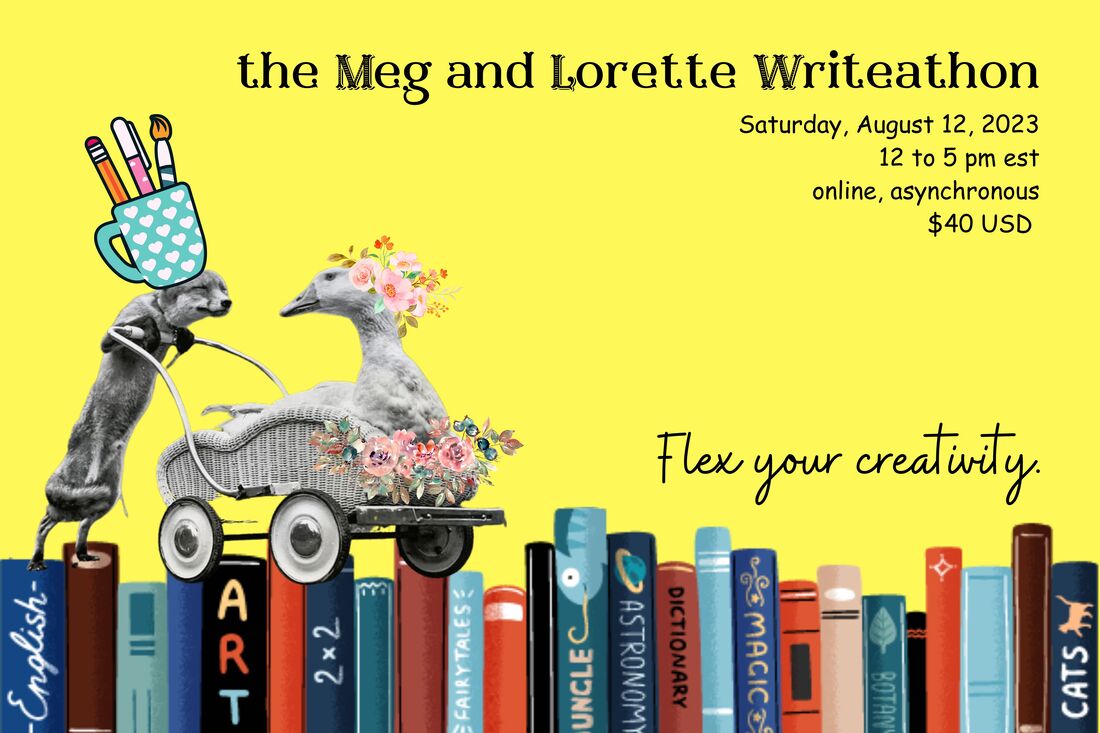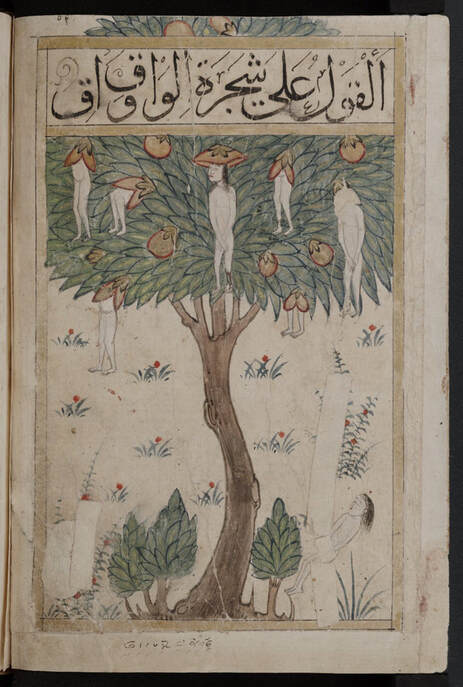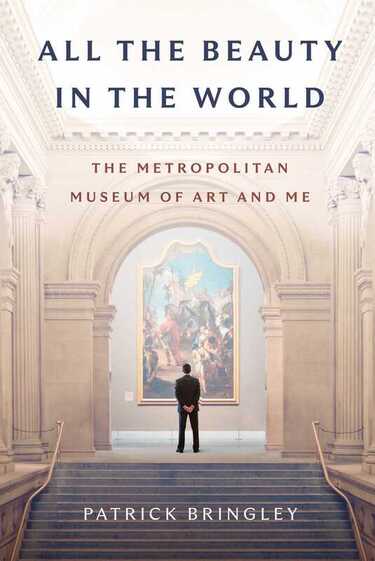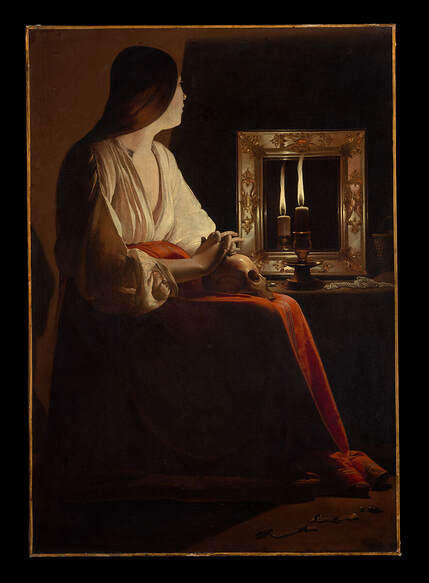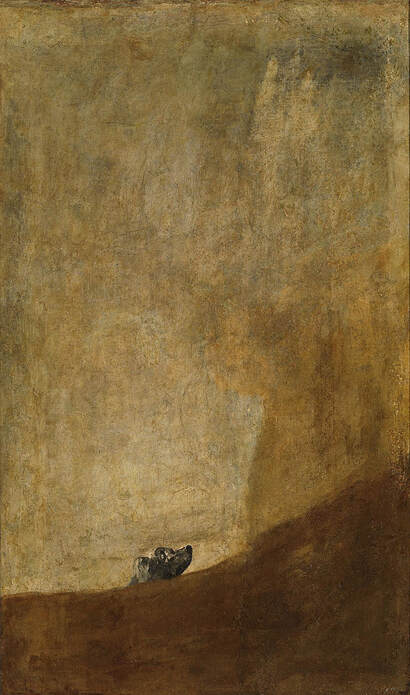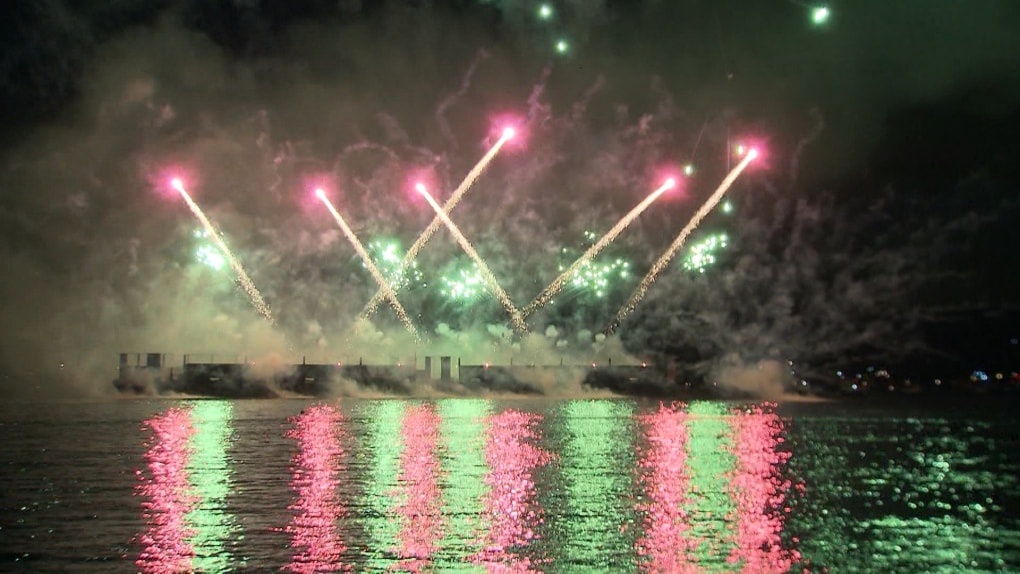|
Grindivak, Iceland after Jon Gunnasson, Fish Drying, 1980 June days that never night, we bike at midnight through sun and wind to the harbor, walk with care across shiny basalt rocks to the salting station, carry the slit cod stacked like fine, cotton aprons to the largest stones, bend to flatten their salty, sopping flesh to dry in sunshine. I story my sister about Ràn, our goddess planting whales into water, providing salty beneficence. When we rest, Anna opens her purse, pours krónur into her palm saying: “Fish is work, Asta, only that.” Not for me. When wind’s up, I pretend I might sail the heavy triangles I hold to Norway, or fly them high, like white kites. My sister shivers when wet needles prick our faces. I say, “Your cod seems a folded umbrella. Open it! Fish are slippery— an entire universe.” VA Smith VA Smith is the author of the poetry collections Biking Through the Stone Age (Kelsay, 2022) and American Daughters (Kelsay, 2023). Her work has appeared or is forthcoming in dozens of literary journals and anthologies, among them: Southern Review, Calyx, West Trade Review, and Ginosko Literary Journal. A former teaching professor at Penn State University and the founder of Chancellor Writing Services, VA is currently at work on a third collection of poems titled Elsewhere (when she is not biking, hiking, loving on her partner, friends and family, or serving as a home chef).
0 Comments
Ardor for Athena Woe unto the man with ardor for Athena, for wisdom he can recognize, but never know -- impenetrable depths where he can never go. What drops are these upon his thigh? What patina: blood or sweat? Who turns his head? For what arena? For beauty he can recognize, but never know -- impenetrable depths where he can never go, woe unto the man with ardor for Athena. A palace arch she can't unlock or let be stormed: Such austere wisdom! Such defense! But she appears to trap herself. He glances back, but does not stand. He does not speak. His battered hands have been deformed by wailing at her walls; his cauliflower ears, from hearing what he never will quite understand. Daniel Kemper Daniel Kemper is an unaccomplished man. He has walked The Bridge of No Return across the Sachong, and returned. He’s carried an acolyte’s cross at dawn and heard poetry at The Gates of Hell at midnight (Rodin Gardens). He’s touched the bones of Dinkenesh (“Lucy”) and climbed Masada at Dawn. He’s been How Berkeley Can You Be and walked the Pamlico Sound barefoot. He’s brought two children into the world and taken his father out of it. He’s written when there was no one he could tell and he writes now bring out things of value and to engage and embrace all those who are doing the same.. a mirror poem: maya angelou’s quarter she gave us wings now embossed on a shiny coin rise on the current of life her words told us rise her river flowing voice sang rise the currency she bequeath us rise the currency she bequeath us rise her river flowing voice sang rise her words told us on the current of life rise now embossed on a shiny coin she gave us wings Sister Lou Ella Hickman, I.W.B.S. Sister Lou Ella has a master’s in theology from St. Mary’s University in San Antonio and is a former teacher and librarian. She is a certified spiritual director as well as a poet and writer. Her poems have appeared in numerous magazines such as America, US Catholic, Commonweal, The Christian Century, Presence, Prism, and several anthologies. She was a Pushcart nominee in 2017 and 2020. Five poems from her book, she: robed and words, set to music by James Lee III were performed on May 11, 2021. The soloist was the opera singer Susanna Phillips, principal clarinetist Anthony McGill of the New York Philharmonic and Grammy® nominated pianist Mayra Huang. The arrangement was part of a concert held at Y92 in New York City. The group of songs is entitled “Chavah’s Daughters Speak.” Another concert was held in Cleveland, Ohio on March 28, 2023. The soloist was Elena Perroni. The Light the Cube Lamp Si firmerà la pace barattandola colla nostra pietà the peace they will sign, will be bartered with mercy. Vittorio Sereni, “La pietà ingiusta”. Gli strumenti umani. My translation. The light the cube lamp projects is too much to look straight at. A white kameez, yellow-turf trousers, eyes and hair - black. Soon, the earth will drink it; soon everything will be thus. The enlightened line has black boots, grey and brown uniforms - no face. The rifles’ deep eye-sockets are sufficient. No one lives unharmed, and there are too many gods asking for sacrifices: This land is our land, They violate the chiaroscuro of our shrines, Our women (where are they?). Nightfall shellfire is welcoming the civil code, freedom, Fountains, schools, railways ... The more one looks, the more troubling the phosphines: The wall, or whatever that is: wide strokes of livid brown, No shadows cast on there, but trampled by the squad. Only one prisoner is looking at you – from the next batch, sideways. Was he hoping to make a dash? Demanding you to remember? Later on, on the esplanade, the queue for the bread will be as slow as usual. They knew from the beginning “a peace will be bartered with something similar to mercy.” When I am asleep, I can still hear everything. Massimiliano Nastri Massimiliano Nastri: "An ever-receding biography: I spent my childhood in a German-speaking village on the Italian Alps, something redolent of Heidi, the cartoon. Three PhDs: is it an achievement? I only have few and minor publications. I work as a teaching assistant at Queen’s University Belfast, where I am revising a book about the interwar collapse of Centre-right parties and the rise of fascism. I am unsure whether it is more ominous or irrelevant. I am also guilty of an unpublished political novel, and of writing a second, to be equally unpublished. Proud of having some work published on Ink Sweat and Tears, Honest Ulsterman and Cyphers. Fifty years old." Something new is coming! The Meg and Lorette Writeathon! A brand new monthly adventure designed to eliminate the blank page.
Click here to sign up! We are thrilled to invite you to this unique, athletic 4 hour writing experience. You will be inspired with our quirky, variety bag of co-curated prompts to create 8 new exciting drafts. There will be art prompts, word prompts, and surprise prompts designed to flex your creativity in the form of microfiction, CNF or poetry. All you need to do is show up with writing pads, a playful spirit, and a desire to write! Writeathon works will be eligible for publication in our forthcoming magazine, ROBIN: a literary quarterly. Meg Pokrass is the award-winning author of 8 flash fiction collections, Mslexia Magazine’s Flash Challenge creator, and founding editor of the Best Microfiction anthology series. Lorette C. Luzajic is the author of several collections of flash and prose poetry, and an internationally collected mixed media visual artist. Her passion for art history and lit collided in the founding of The Ekphrastic Review, the world’s flagship journal of writing inspired by art. We can’t wait to see what you will write in the first writeathon. Those who can’t join in real time, you will have a week to participate at your convenience. $40 USD Click here to sign up via our official Substack. Waqwaq Tree Floating along the Pacific and among the jade encrusted waters lies the island of Zamini. From this island, if you are willing to journey a little further for a worldly wonder, a smaller island lies just behind the smoothest peak. From there, it shouldn’t be too long until you stumble on the Waqwaq, your path carved by palms. When you see the Waqwaq you’ll know, you may even hear its name, the sound of the ‘w’ whishing through the air from ripe lips, across the island as other travelers before you have. The tree’s blossoms are women. Different colors of skin and hair but it is known all their bodies are the same, breasts and vulva. They dangle by their necks, tree branches maintaining the tight grasp, and when you first see it, it might be quite frightening. You must remember, however, that if cut loose from the tree, the women die. It takes two days, and it is quite terrible with foaming at the mouth, hallucinations, and massive dehydration. I must warn you though that some have successfully escaped from the tree’s confines. So, the time to visit the tree is now. It is unknown how they do it. I was visiting once, as is my monthly ritual, and a male traveler was once put in place of a woman! Now if one goes missing it is most common to see steel lilies hanging from the branch that used to hold their necks, the lily curiously matching the weight of a body. Hannah Grace Greer Hannah Grace Greer is a disabled writer and poet who loves trees, baking, philosophy, religion, and mythology. She is originally from Pennsylvania and is currently studying creative writing at the University of Iowa. Her work has been published in Eye to the Telescope, Bridge Eight Press, The Broadkill Review, and elsewhere. You can find her @hannahggpoetry on twitter and instagram. All the Beauty in the World: Book Review By Alarie Tennille All the Beauty in the World: The Metropolitan Museum of Art and Me by Patrick Bringley Simon and Schuster 2023 View or purchase on Amazon, click here. For a book to deserve a glowing review at The Ekphrastic Review, it must be superbly written AND surprise us with revelations about art. This first book by Patrick Bringley goes way beyond that. He also tosses in valuable pointers that may improve our own ekphrastic writing or assist in teaching ekphrastic workshops. Some of his quotes would even make superb epigraphs for poetry or flash fiction. On top of this book’s usefulness, it’s wonderfully entertaining. Who wouldn’t be fascinated by a behind-the-scenes look at how the Met operates? Even art thefts and damage caused by clumsy patrons can be fascinating. It’s hard to believe how much the author packed into just 180 pages of text (including illustrations). Some readers may plow straight through this book, but I suspect most writers will mark quotes and take time to savor all its beauty. My bookshelves suffer from overcrowding, but this is a book that will have a permanent home. Fresh out of college, Bringley landed a good job at The New Yorker, a phenomenal achievement for someone so young. So how did he wind up going from there to working the long, always-on-your-feet hours at the Met for much less money and prestige? Why did he stay for ten years? I found it brilliant that page one began, “In the basement of the Metropolitan Museum of Art…” Our interest is piqued before we even learn about his impressive first job. He chose to set up the museum and the power of art as the focus of the book. He keeps us in the museum until page 25, when he introduces his not-quite-two-years-older big brother, Tom. Unfortunately, Tom, a newlywed, is dying of cancer. Patrick can’t manage the stress of dealing with his grief and being there for his brother while breaking into a demanding job at The New Yorker. Plus he’s also getting married with all that requires. Bringley made a wise move and invited us to come along with him. Fortunately for readers, the Met guards are regularly rotated. No matter what sort of art you prefer, you’ll get a taste of it on Bringley’s rounds. From Ancient Egypt (a favourite exhibit for children) to the quiet galleries of Asian art, European Old Masters to Modern, and special exhibits. We get a very thorough tour that even includes music. I was especially excited that he finished off his art talks with the quilts and the quilters of Gee’s Bend. I met those quilts at the High Museum in Atlanta nearly 20 years ago, and they remain inspiring to me. Almost as fascinating as his art insights is the mix of people he encountered from all over the world. Both guards and guests are international. Almost seven million visitors pass through the Met each year. After spending long hours in the same gallery, Bringley discovered a new way of appreciating art that’s useful for TER authors. He says, “In time I develop a method for approaching a work of art. I resist the temptation to hunt right away for something singular about a work, the ‘big deal’ that draws the focus of textbook writers…. Art needs time to perform its magic for us.” (Although we don’t have a lot of time for TER’s ekphrastic challenges, it’s a good idea to go back and look at them several times on different days to see if we discover something new to set our writing apart.) At first Bringley didn’t see the appeal of Monet, suspected his art was just pretty until he spent time with a village scene: “I look…a long time, and it only grows more abundant; it won’t conclude.” He adds that Monet “has painted that aspect of the world that can’t be domesticated by vision…what Emerson called ‘the flash and sparkle’ of it.” Bringley was certainly right about the healing power of art and contemplation, too. But after ten years he did leave the Met, not because he tired of the job, but because working long hours and on weekends didn’t allow enough time with his young family. He was ready to move on, and the Met gave him all he needed to write a best-selling book. Alarie Tennille Alarie Tennille was a pioneer coed at the University of Virginia, where she earned her degree in English, Phi Beta Kappa key, and black belt in Feminism. Alarie received the first editor’s choice Fantastic Ekphrastic Award from The Ekphrastic Review, and in 2022, her latest book, Three A.M. at the Museum, was named Director’s Pick for the Nelson-Atkins Museum of Art gift shop. [ alariepoet.com ] The Penitent Magdalen The jewels have fallen at her feet. Torn tassels, a pendant once dear, now collecting dust by the hem of her robe. Hands folded placidly resting upon the skull in her lap. And she gazes somewhere above the mirror, in which her ghostly pale face does not show. What could have gone wrong? What grievous sin might have caused the pearls to unravel from her neck, and collect like rainwater on the stone table? Her hair and hands, now sleek wood. Perhaps she was whittled that way from the start. Lips parted in soft silent agonies, she turns her face discreetly from me. Oh to put her out of her misery. The candle burns tall and harsh. She has given herself to God, but can no longer see her own face. Perhaps she holds the skull to reminds herself of mortality; perhaps she holds it in longing for it. Rooney Kim Rooney Kim is a rising freshman at Wesleyan University. Her work appears on Rising Phoenix Review and has been recognized by City College. When she isn't writing poetry, she is most likely making (very) slow progress on her novel. She also has an unnatural obsession with all things related to 19th century art. She currently lives in New York City. Whispered in the Ear of The Dog Oh, the swelling mound — round-- coming out from nowhere. Now. Go up you must, without explanation for any existence of it or why it came. Even if you cannot know what it is, at least you want to know what is next. Will the view from this new top be enough? Bedeviling in appearance, will it rise further against you or, can you ride it? Whichever, this is a lostness in which there is no choosing with neither soaring blue above, nor sparkling splash below. For this is the immediacy found in having to mount the back of barrenness. Here is not a question of agreement or non-agreement. That is not in the air. There is only the need to surmount what you can presently see. Even should you be a lion, this would not help. From a somewhere, a far off, you overhear a familiar name, barely. Yours? Time to stand up your ears and do what is right in the sight of your eyes. Do not waiver in your will because of vastness. Vastness is. It will always be. And here you cannot stay. For after all, if you fail, you could not leave behind everything you know. Otis Sprow Otis is a poet who lives in Baltimore, Maryland where he is a frequent presenter at various Open Mic nights in the area. He has been the poet opening the 2022 Secretary's Award ceremony (U.S. Department of Housing and Urban Development) and is also the author of a single-writer poetry anthology available on Amazon (600 pages). Best of the Net Nominations 2024 Baby Boy, Born at 34 Weeks Heather Brown Barrett https://www.ekphrastic.net/the-ekphrastic-challenges/ekphrastic-writing-responses-rachel-ruysch ** The Roar of the Waterfall Rose Mary Boehm https://www.ekphrastic.net/the-ekphrastic-challenges/gustave-courbet-ekphrastic-responses ** The Oak by Edvard Munch Ellen Aronofsky Cole https://www.ekphrastic.net/the-ekphrastic-review/the-oak-by-edvard-munch-by-ellen-aronofsky-cole ** Azul Kate Copeland https://www.ekphrastic.net/the-ekphrastic-challenges/ekphrastic-writing-responses-john-bingley-garland ** Moriturus (Ascanius and the Stag) Julia Griffin https://www.ekphrastic.net/the-ekphrastic-review/moriturus-ascanius-and-the-stag-by-julia-griffin ** Wailing Wall Stephen Kingsnorth https://www.ekphrastic.net/the-ekphrastic-challenges/gustave-dore-ekphrastic-writing-responses ** Monologue from a Cup of Coffee in Edward Hopper’s Painting Morgan Ray https://www.ekphrastic.net/the-ekphrastic-review/monologue-from-a-cup-of-coffee-in-edward-hoppers-painting-by-morgan-ray ** A Villanelle Honouring the Painting: Hymn to the Virgin Jeannie E. Roberts https://www.ekphrastic.net/the-ekphrastic-challenges/ekphrastic-writing-responses-theodoros-poulakis ** Mother Mushroom and the Sextuplets Jane Salmons https://www.ekphrastic.net/the-ekphrastic-challenges/ekphrastic-writing-responses-edward-okun ** The Women of the Théâtre D’opéra Spatial Alice Whittenburg https://www.ekphrastic.net/the-ekphrastic-review/the-women-of-the-theatre-dopera-spatial-by-alice-whittenburg |
The Ekphrastic Review
COOKIES/PRIVACY
This site uses cookies to deliver your best navigation experience this time and next. Continuing here means you consent to cookies. Thank you. Join us on Facebook:
July 2024
|
